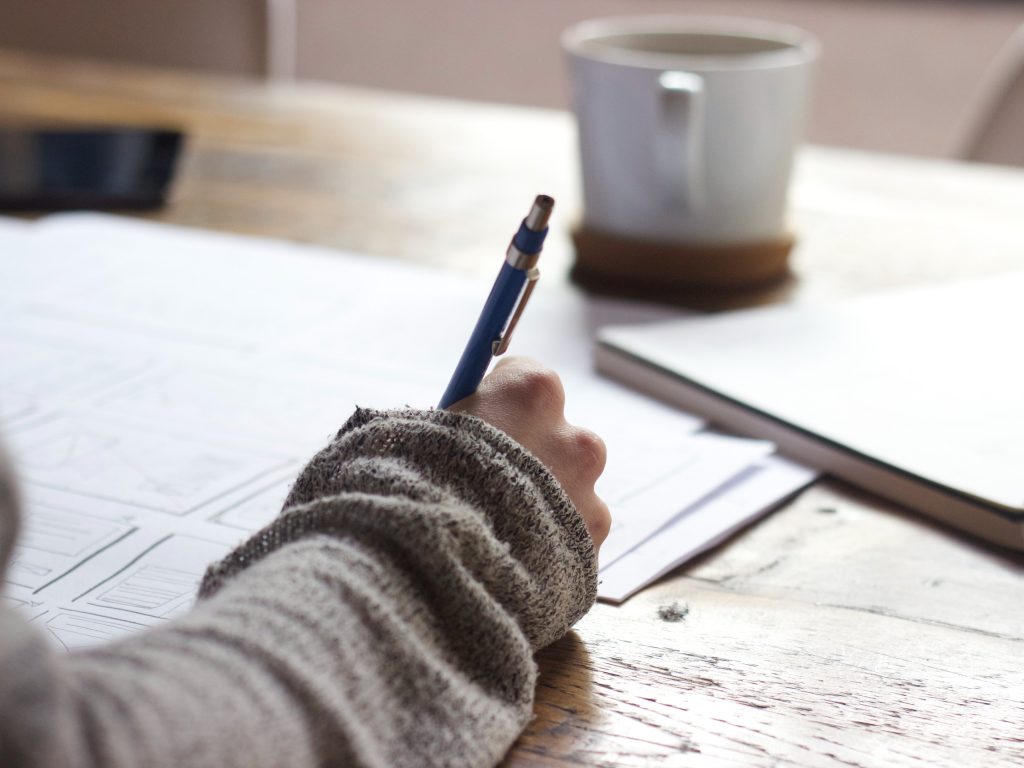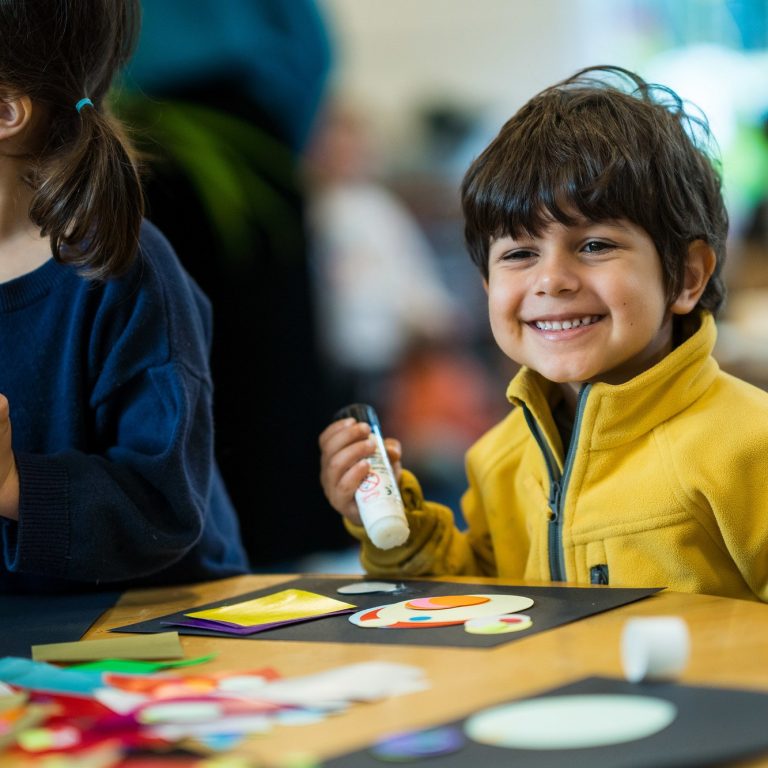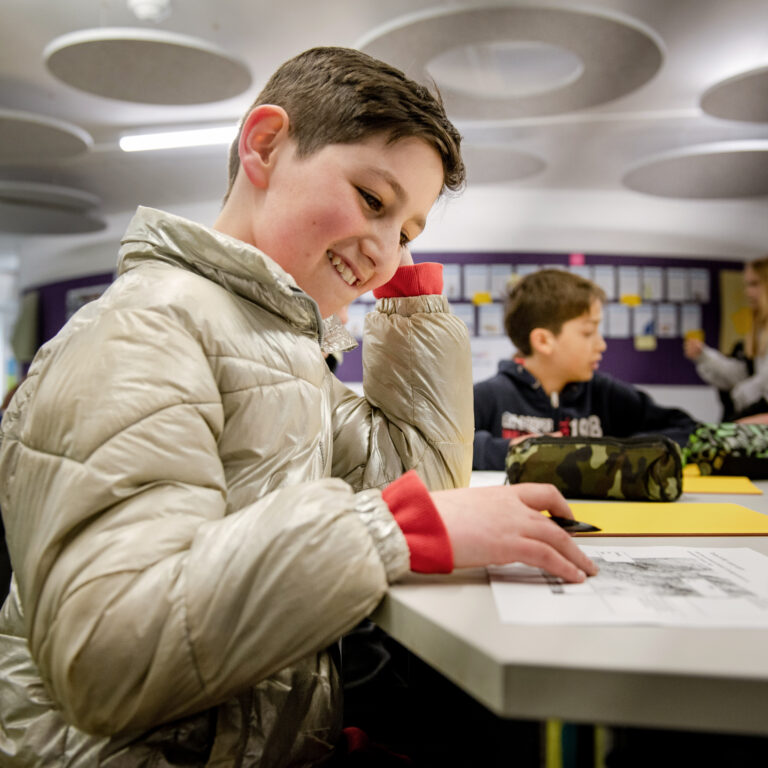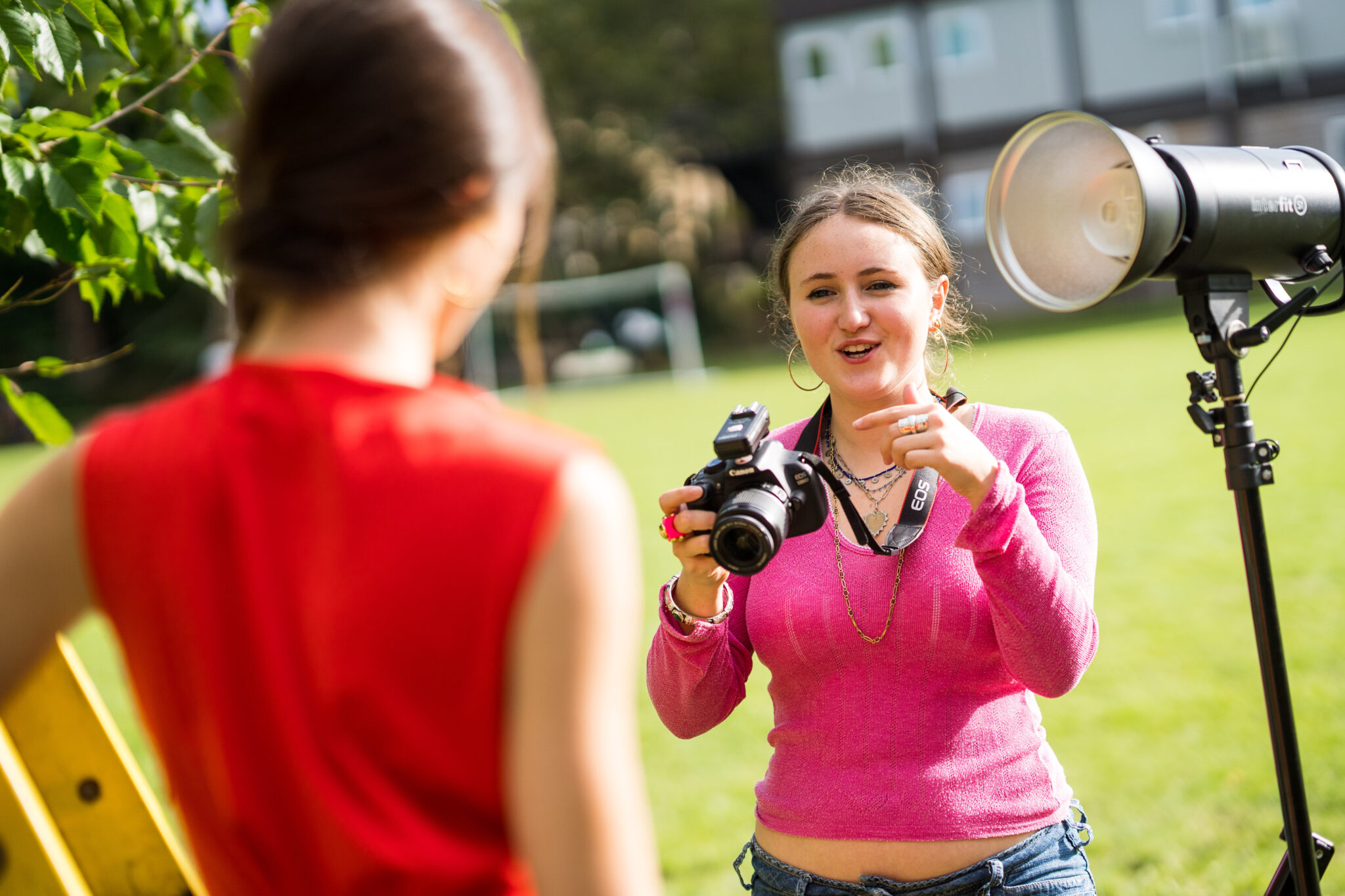Remote learning for Upper School students
23rd March 20

Studying from home is new and can be challenging. We strongly recommend that you keep your daily routine as similar to the school day as possible. Remember, the buildings might be closed but your education is continuing.
Every morning, your Head of Year, will host a Callover on Canvas for your year group. You need to check-in to this Callover at 9am and make sure you have replied to your HOY by 9.15am.
Before launching into all your work in Canvas, take some time to go through these 'Studying at home' tips.
Working from home – 13 practices to maintain your mental wellbeing
- Be prepared
Minimise your stress by having things ready in advance. make sure you have the resources you need at home. Does the technology work? Do you have the right books? Do you have the pens and paper that you need? Checklist of resources.
- Create a workspace
Set up a space for yourself, even if it is a small space, which you can walk away from when not working. This will probably mean not your bedroom. This will help you focus when working but also provide you with a psychological “end point” of the day when you leave the space.
- Keep to your timetable
Use the school day to frame your work from home. Take breaks at the same time you would at school. Ensure you have a lunch time break of an equivalent length with a proper meal away from your work. Don’t work outside of the school day. Once you hit the end of the school day, stop working, pack everything away and take time for yourself.
- Keep active
Break up your day with regular bursts of activity: run round the garden, dance round the kitchen to very loud music or do an exercise routine: www.youtube.com/playlist?list=PLyCLoPd4VxBuxu3sLztrvWFehzv-LnR2c (Links to an external site.). This will help you maintain focus. Remember that at school you have lesson changeover where your brain gets a chance to re-group.
- Get outside
If you’re not ill there is no reason why you can’t go outside and get fresh air. Multiple studies have shown the benefit of this on your mental health along with building your Vitamin D reserves to boost your immunity.
- Practice self-care
Carve out time for exercise, meditation, yoga, baking, crafting, playing games, reading for fun, etc. For example, challenge yourself to learn a new skill via YouTube. Avoid the temptation to graze continuously. Eat at the times you normally would. Eat good food.
- Speak with people
Working from home can be an isolating experience. Rather than send an email or a text, could you pick up the phone and have a chat? The importance of those casual interactions throughout the day are so important to our mental well-being. Try to have at least one phone conversation or video chat each day.
- Maintain hygiene practices
Wash your hands regularly. Use hand sanitiser. Cough and sneeze into your elbow. Throw used tissues away immediately. You know the drill…
- If you’re feeling low, tell someone
Working from home can be an unexpectedly difficult thing when you’re not used to it. Share your experiences – you’ll find that everyone is finding it a challenge and that will ease your burden.
- Sleep well
Avoid the temptation to sleep-in. Set an alarm for the morning just as you would for school. Go to bed at the same time as you normally would. Make sure you have done physical activity to tire yourself out during the day.
- Help out at home
If you’re at home all day, you should try and ensure that you are contributing to the day-to-day routine of your home. Share the responsibility for keeping your home tidy and clean. Take turns to cook and bake treats for your family. Above all, be kind to one another.
- Keep a journal
You are living through extraordinary times with this pandemic. It may be prudent to keep a journal of your experiences. On a daily basis, taking a moment at the close of your day to consider what is happening in your world. You can try private ePortfolios as a way to journal online.
- Don’t panic
Take care of yourself and the people around you. Be mindful when watching the news. Keep calm and carry on.
Contact us
All of your teachers will be working at the same time as you. If you need any help with your work, please send them a message through Canvas.
You can also call your Head of Year from 9am to 4pm.
Call Adam on 07943 600 863 (Year 7)
Call Claire on 07377 368 404 (Years 8 and 9)
Call Emma on 07377 383 386 (Years 10 and 11)
Call Takako on 07506 824 405 (Years 12 and 13)
Alternatively, you might like to speak to Fiona (Head of Pastoral Care and Wellbeing) on 07506 980602 or Tracy (School Counsellor) on 07506 980539.
If you are having any problems with Canvas, please check out these FAQs and if you need more help you can speak with your HOY or contact Peter on petern@kingalfred.org.uk.
Click below to find out how work is being set for different year groups:
Years 7, 8 & 9
For Years 7, 8 and 9, work will be set on Canvas. There are longer pieces of project-based work that you can work on independently using the guidance given by your class teacher. Or you might have lesson-by-lesson assignments set through Canvas. Your teachers will be available to answer questions through Canvas or via email. If any part of Canvas is not working for you, the best thing to do would be to contact your Head of Year who will help get you sorted.
We would recommend that you organise your work using your timetable. For example, work on your History project when you would normally have a History lesson. This will help you maintain a “normal school-day” even though you are at home.
When you would be timetabled for Choice you should try and do something outside of your normal lessons and that is personally enriching and not focused on a screen. For example, it could be a good opportunity to practice some yoga using YouTube, do something crafty or go on a long walk with your family.
For PSHE we are using the videoconferencing tool on Canvas. You will need to go to your PSHE Canvas course when you would have a PSHE lesson, click “Conference” and “Join”. The focus of these sessions will be to allow you to have a class experience and discuss how things are going with your working from home. We may also trial this with Form Hour too.
You will receive at least one phone call a week from your Head of Year or a member of the senior team. This is to check-in with how things are going and to chat about how you are finding working from home.
Working from home can be challenging no matter what age you are. There is some advice on how to maintain a positive mindset while working at home which is linked at the top of this page.
Years 10 & 12
For Years 10 and 12 work will be set on Canvas using Assignments. This work will keep you in line with the schemes of work which you are currently studying to ensure that you don’t lose any time while preparing for your courses and examinations at the end of next academic year. If any part of Canvas is not working for you, the best thing to do would be to contact your Head of Year who will help get you sorted.
We expect you to organise your day in accordance with your daily timetable. Your subject teachers will be setting work on the day they would normally be teaching you. For example, when you normally have a History lesson, check the work in Canvas that has been set by your History teacher and work away.
Some of your teachers may use the videoconferencing tool within Canvas at the time they would normally teach you. On all of your courses there is now a “Conference” option and you simply click “Join” when there is a videoconference, which you will be notified about. However, don’t worry if you can’t access this as all the videoconferences are recorded so you will be able to access it at a later time.
When you would be timetabled for Choice, Enrichment, Form Hour or Sport you should try and do something outside of your normal lessons and that is personally enriching and not focused on a screen. For example, it could be a good opportunity to practice some yoga using YouTube, do something crafty or go on a long walk with your family.
You will receive at least one phone call a week from your Head of Year or a member of the senior team. This is to check-in with how things are going and to chat about how you are finding working from home.
Working from home can be challenging no matter what age you are. There is some advice on how to maintain a positive mindset while working at home which is linked at the top of this page.
Years 11 & 13
For Years 11 and 13 work will be set on Canvas. While things are uncertain, we would want you to continue with your normal lessons. We expect you to organise your day in accordance with your daily timetable. Your classes are likely to be videoconferenced, as per the training you have had at school. On all of your courses there is now a “Conference” option and you simply click “Join” when there is a videoconference, which you will be notified about. These conferences will happen at the same time as your timetabled lesson. The videoconferences are recorded so you will be able to access it at a later time. However, if there is no videoconference scheduled then an assignment will have been set for you in the normal way.
If any part of Canvas is not working for you, the best thing to do would be to contact your Head of Year who will help get you sorted.
Your subject teachers will also be setting work on the day they would normally be teaching you. For example, when you normally have a History lesson, check the work in Canvas that has been set by your History teacher and work away.
When you would be timetabled for Choice, Enrichment, Form Hour or Sport you should try and do something outside of your normal lessons and that is personally enriching and not focused on a screen. For example, it could be a good opportunity to practice some yoga using YouTube, do something crafty or go on a long walk with your family.
You will receive at least one phone call a week from your Head of Year or a member of the senior team. This is to check-in with how things are going and to chat about how you are finding working from home.
Working from home can be challenging no matter what age you are. There is some advice on how to maintain a positive mindset while working at home which is linked at the top of this page.
Staying Safe Online
If you see anything that worries you, on the internet or offline, you can always tell an adult. You have the right to feel safe, and if you have been hurt in any way you have a right to help. You can go to Childline (Links to an external site.) to get help and support about almost anything. You can also use CEOP (Links to an external site.) to report abuse.







